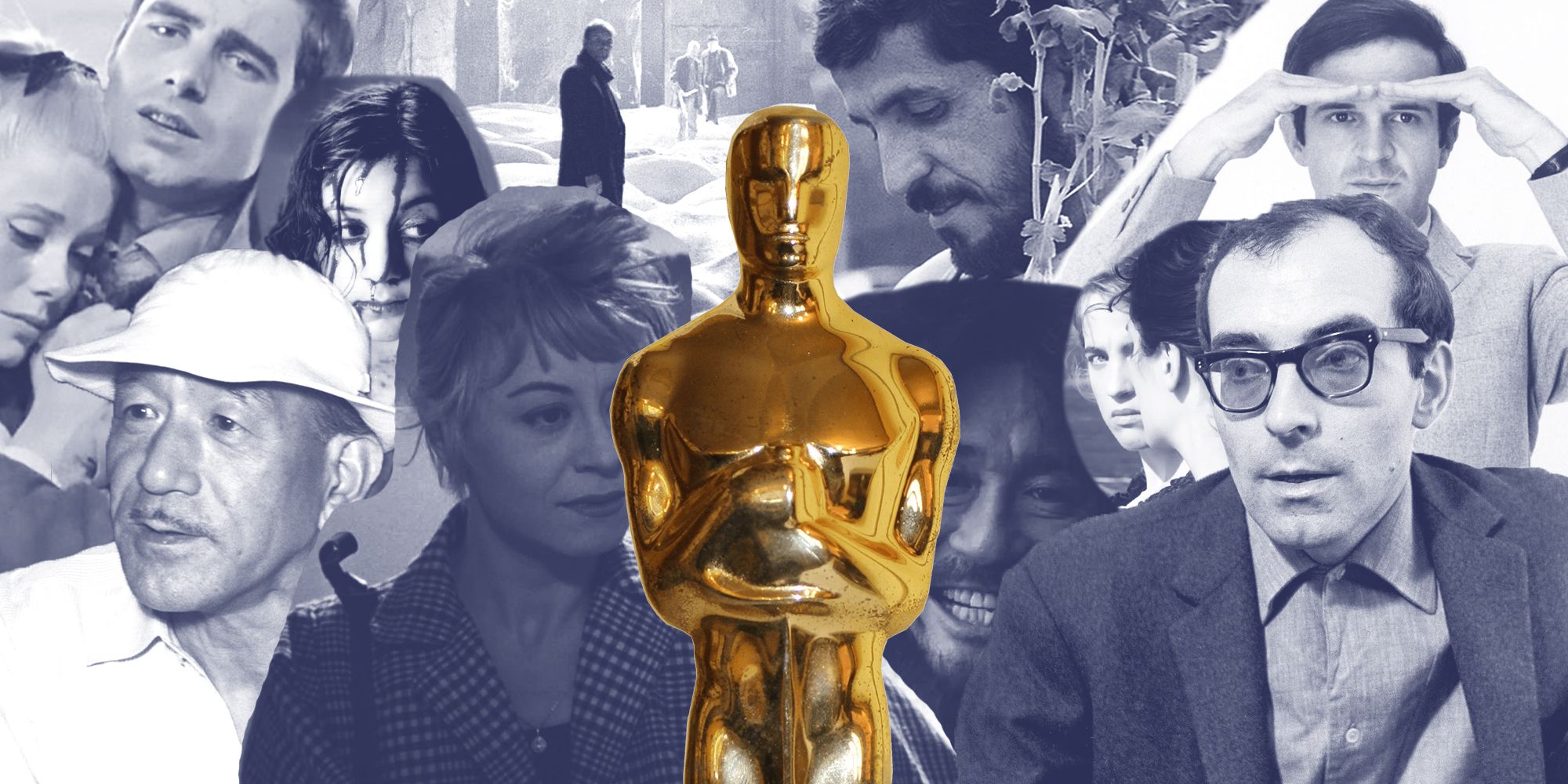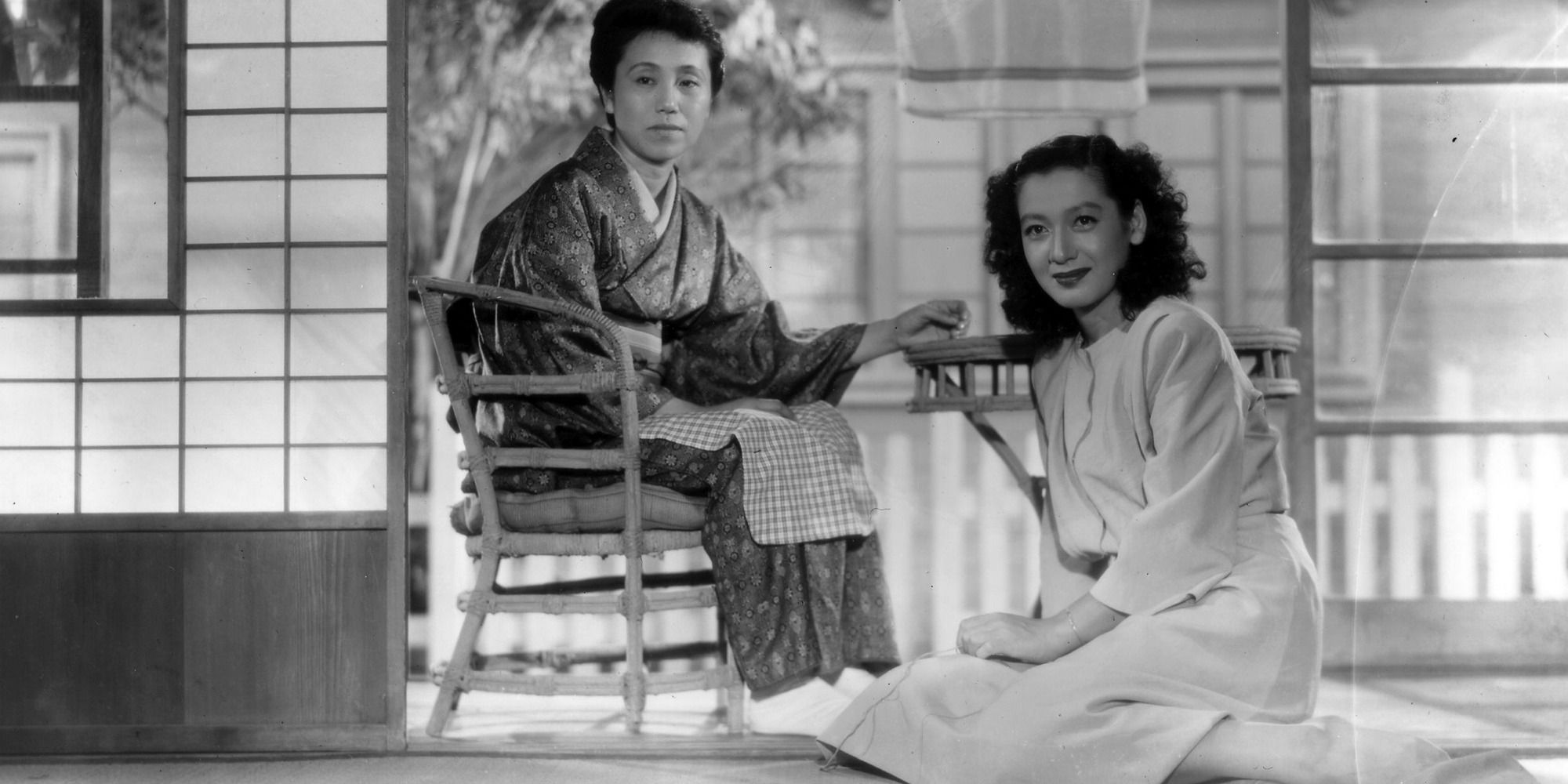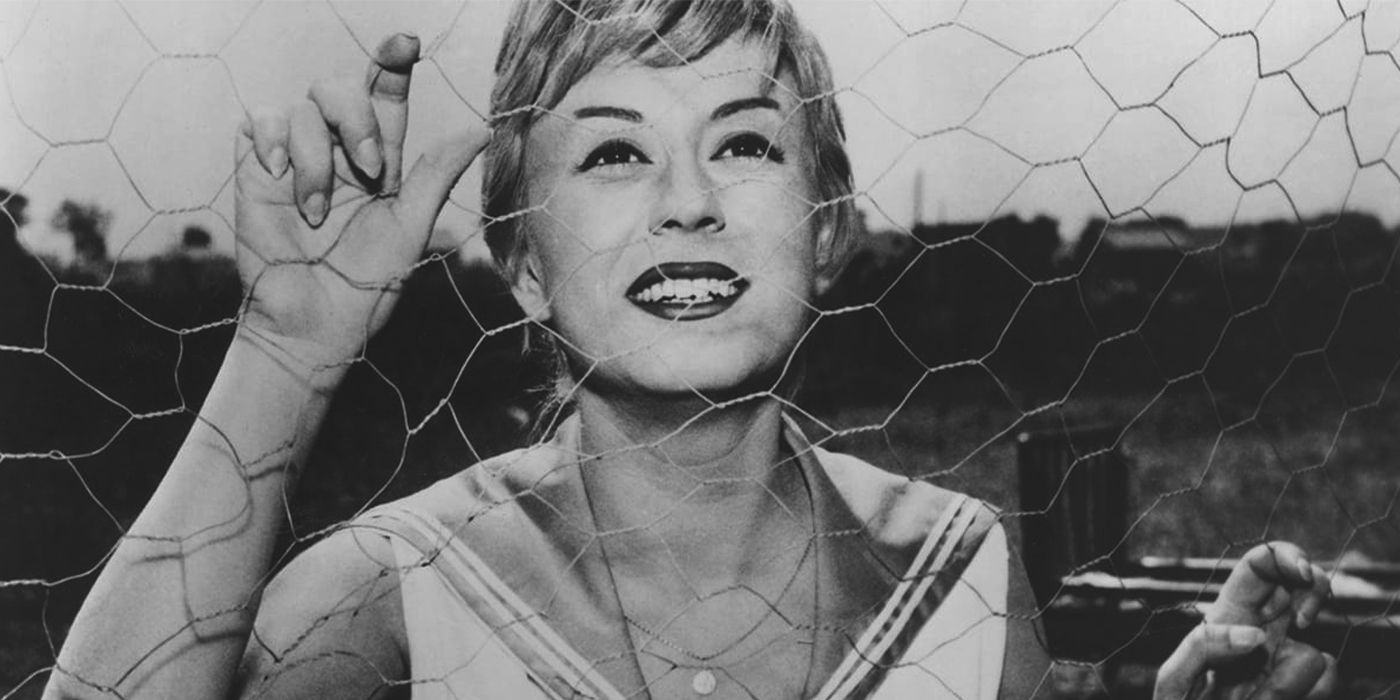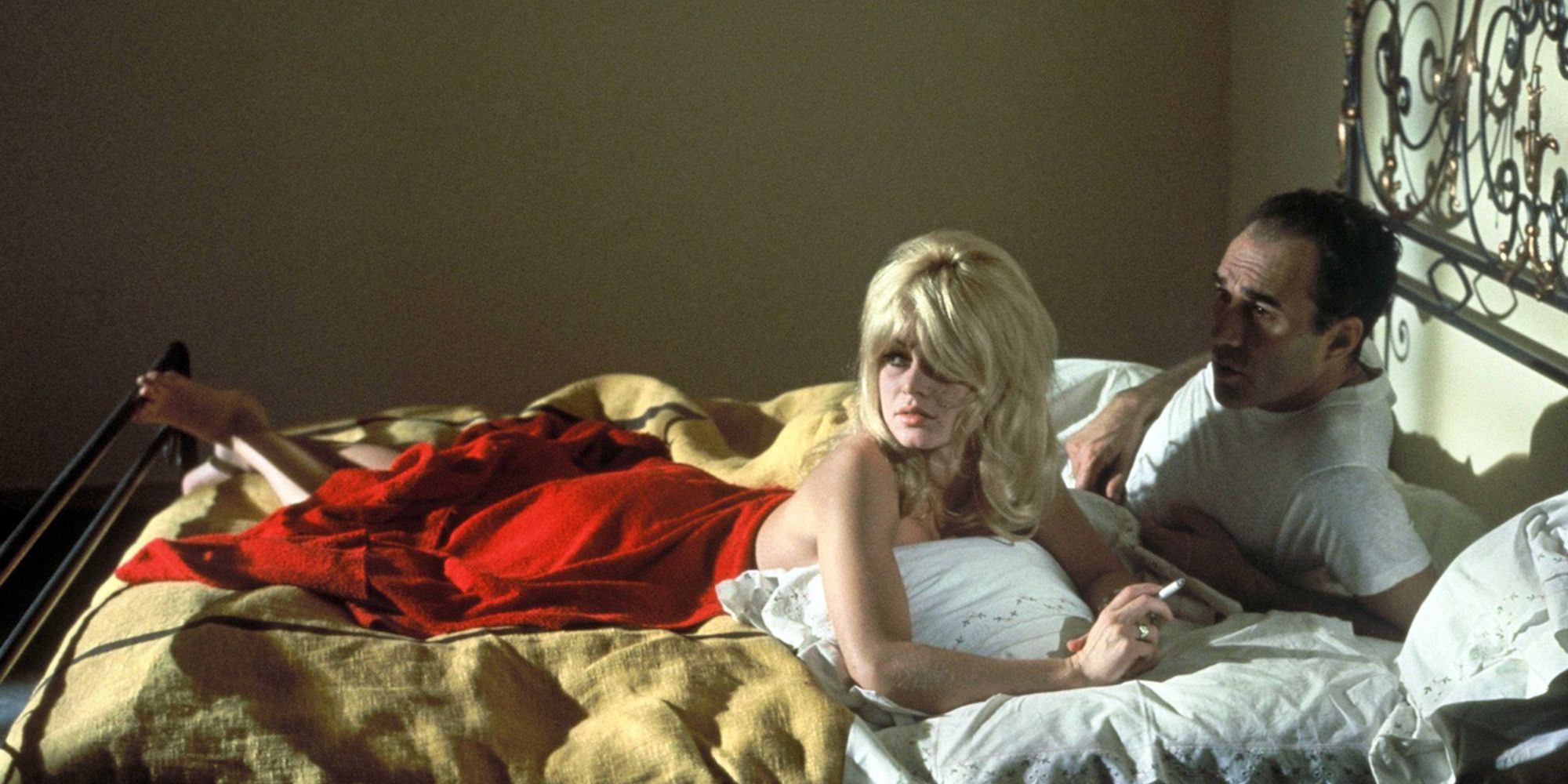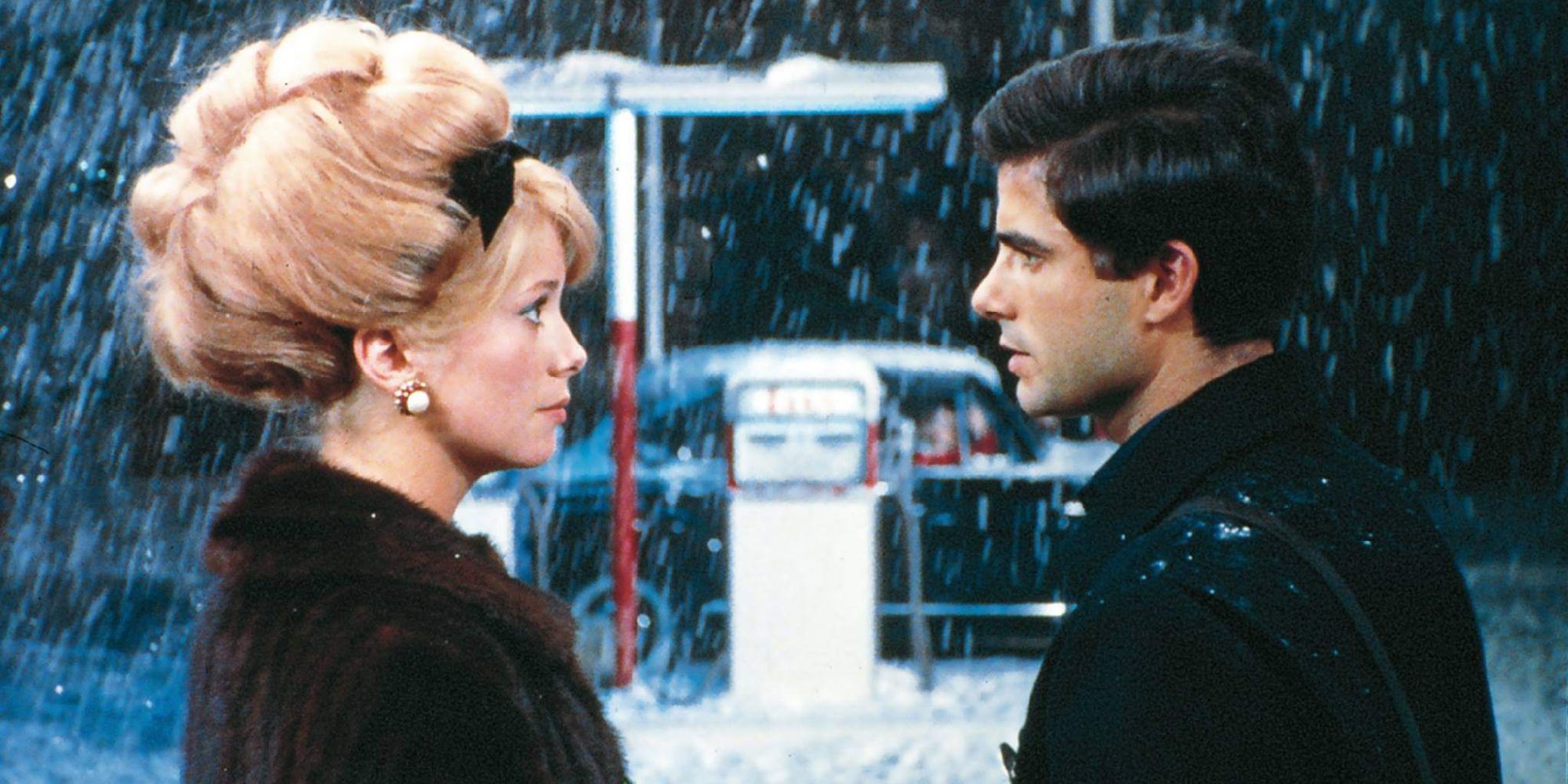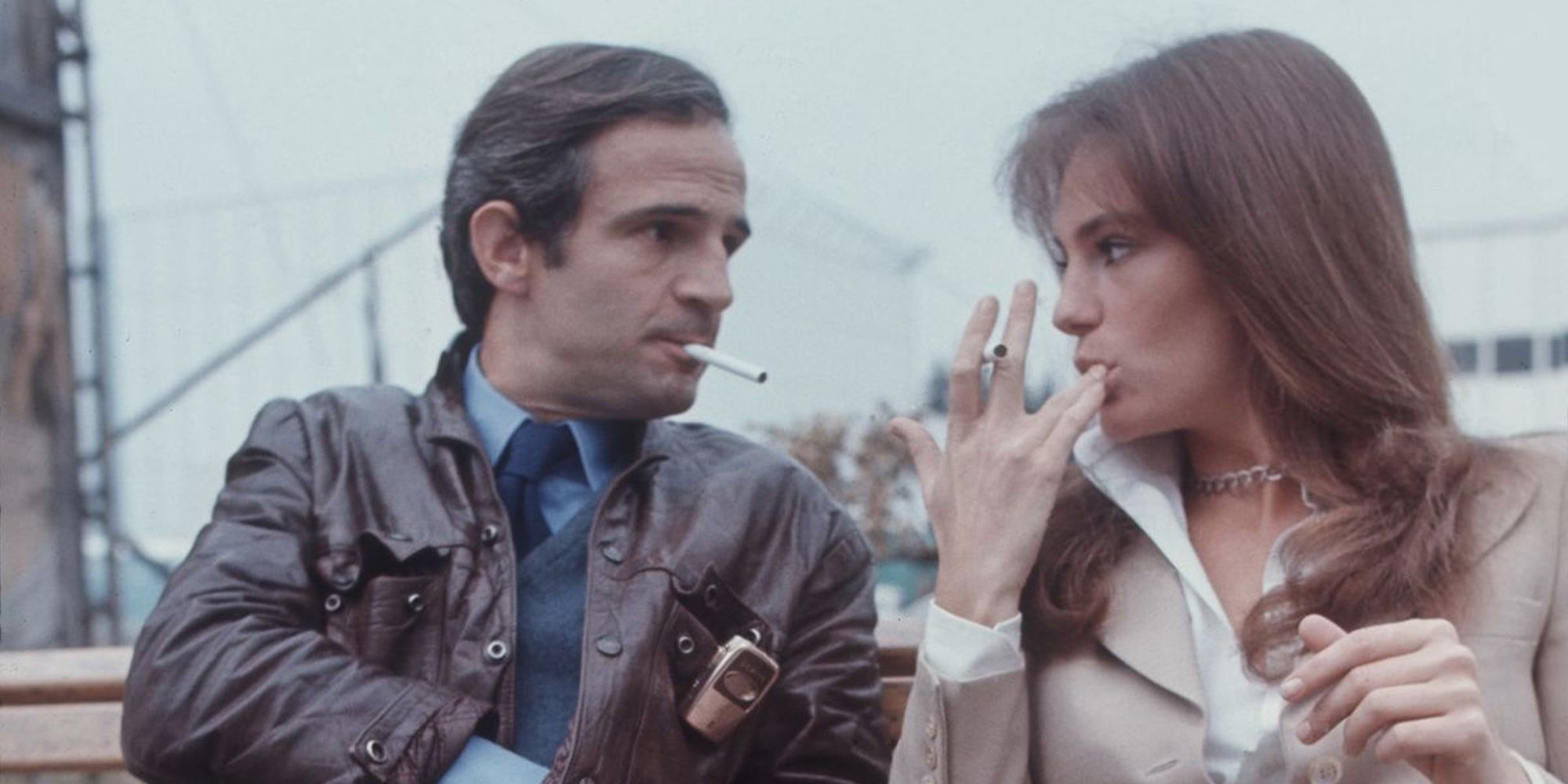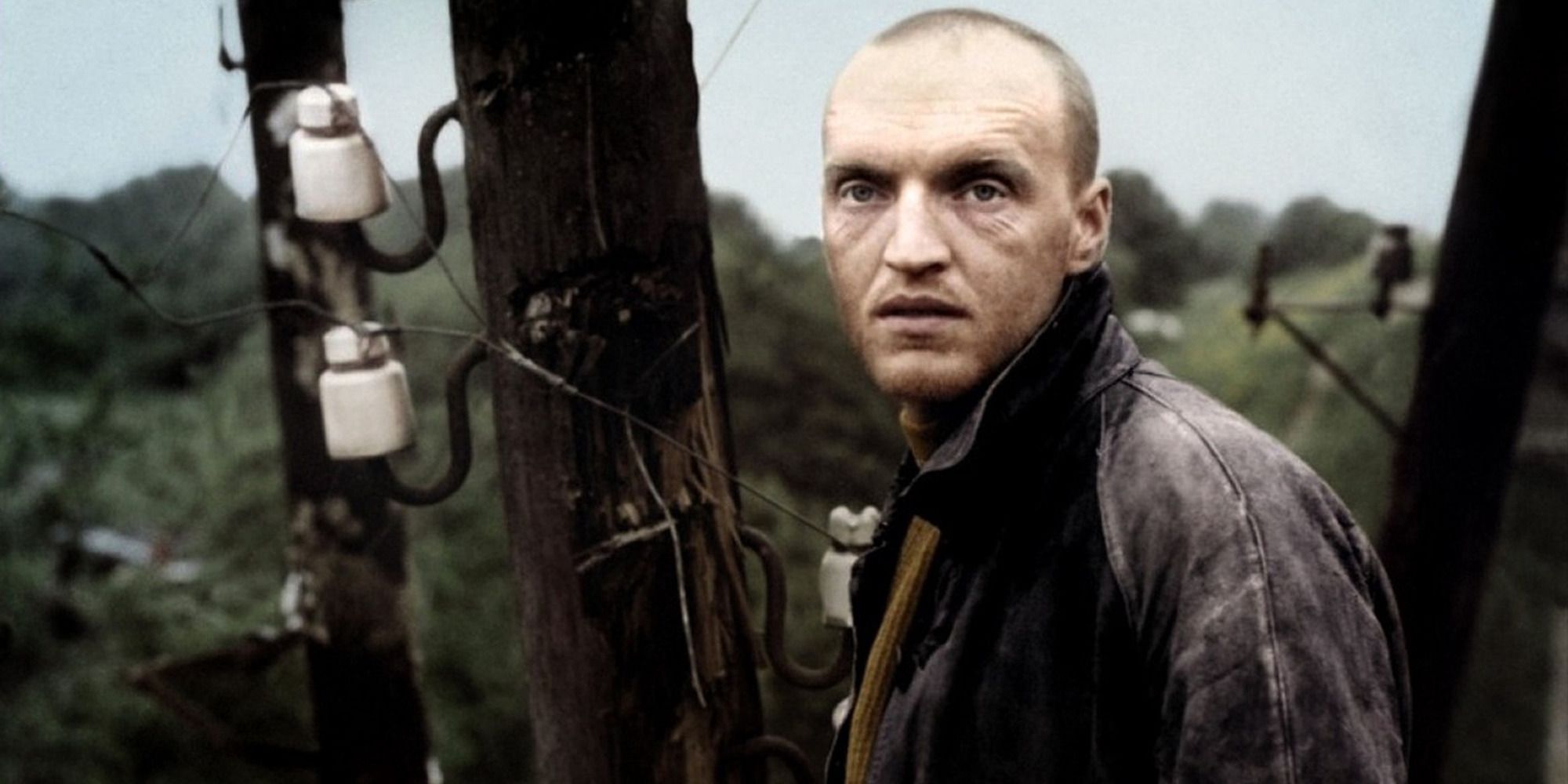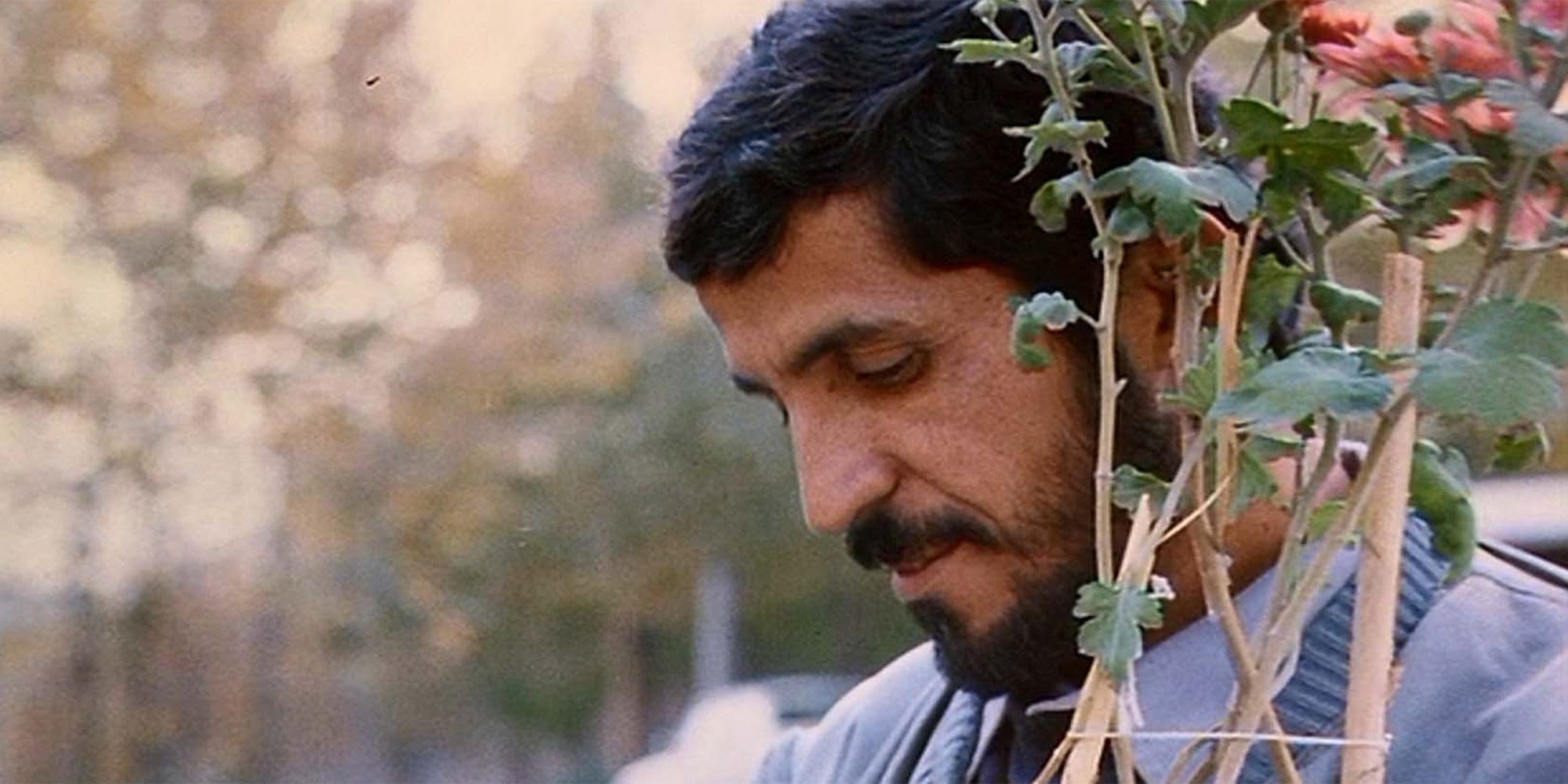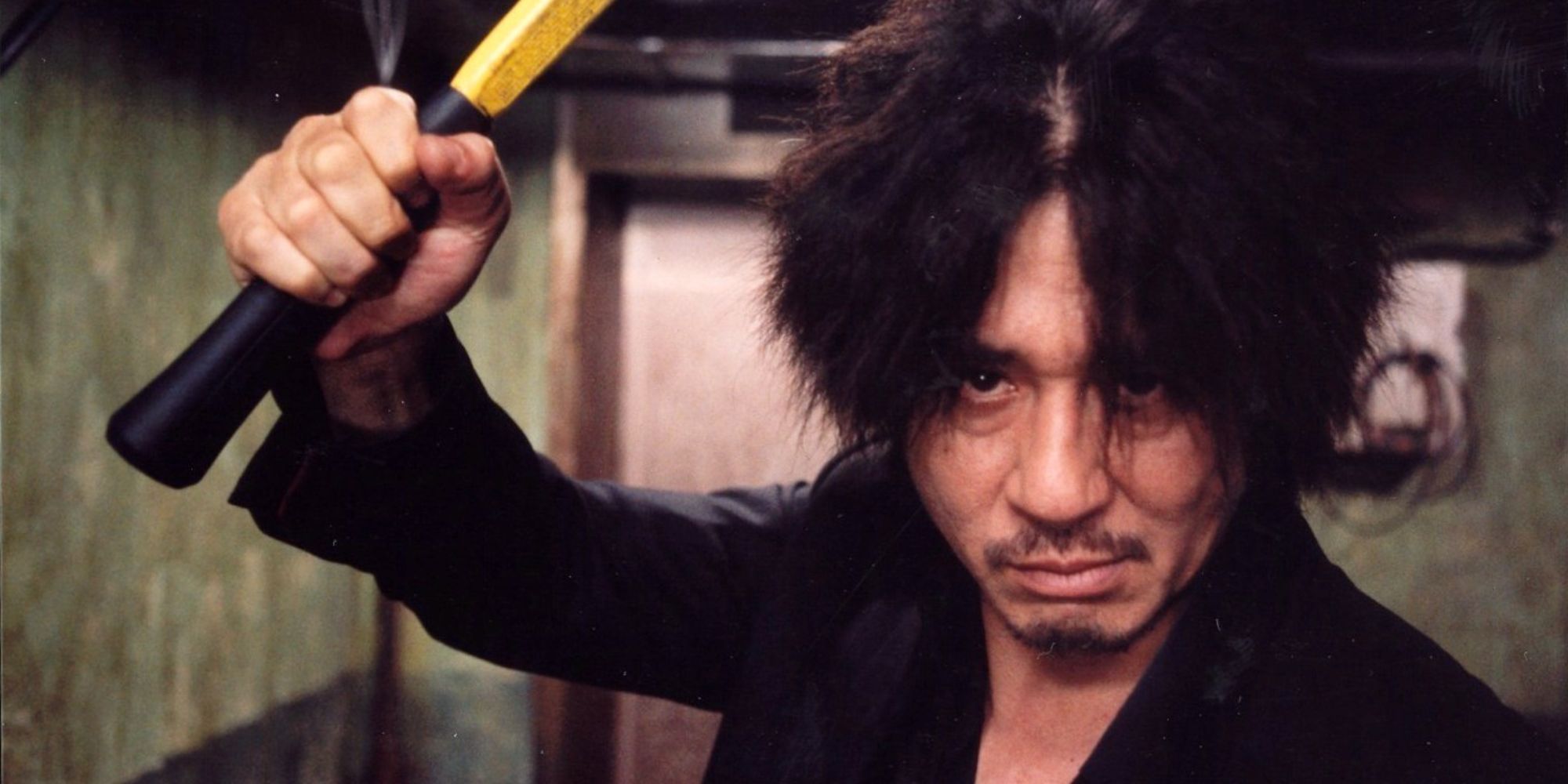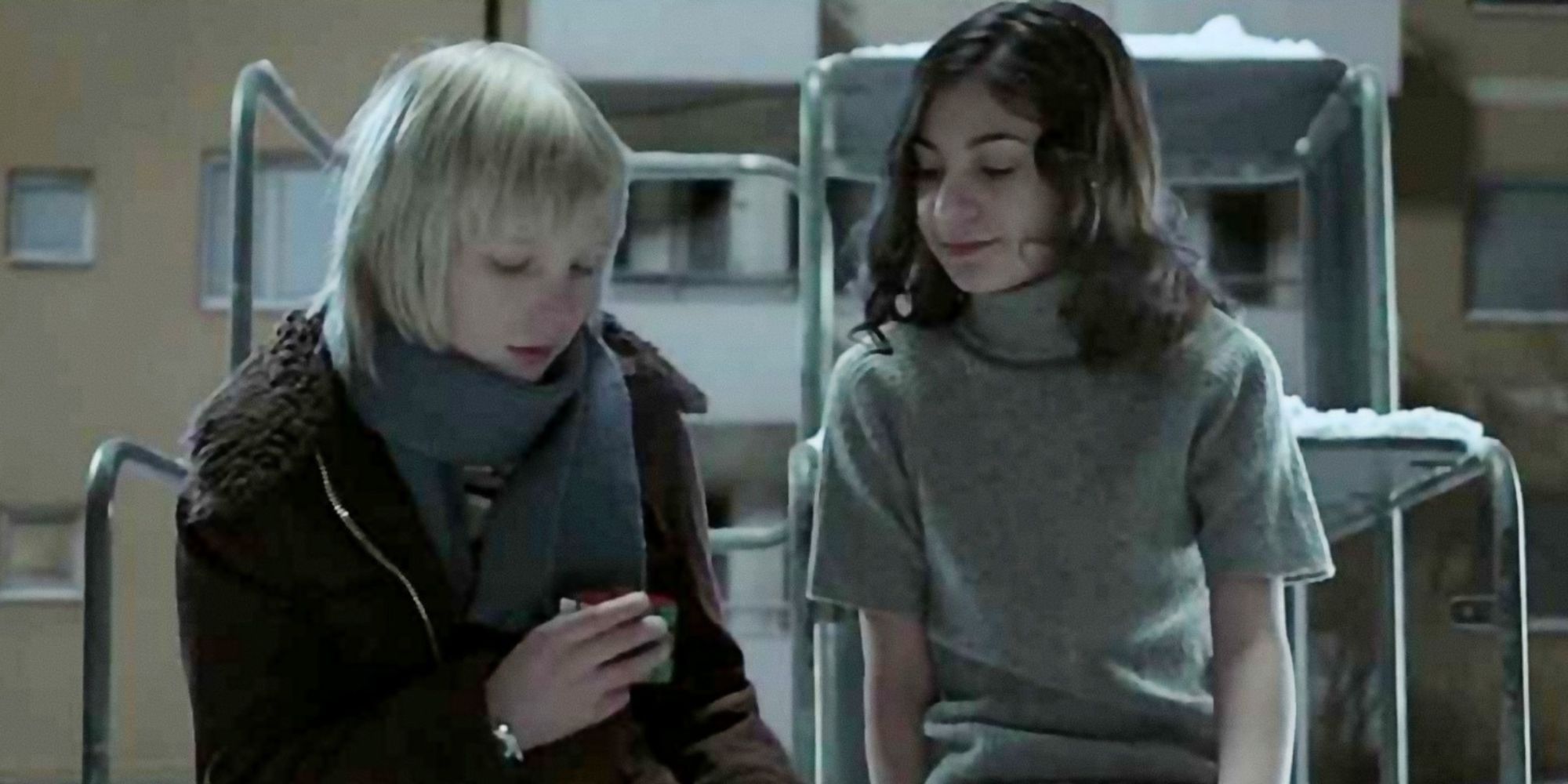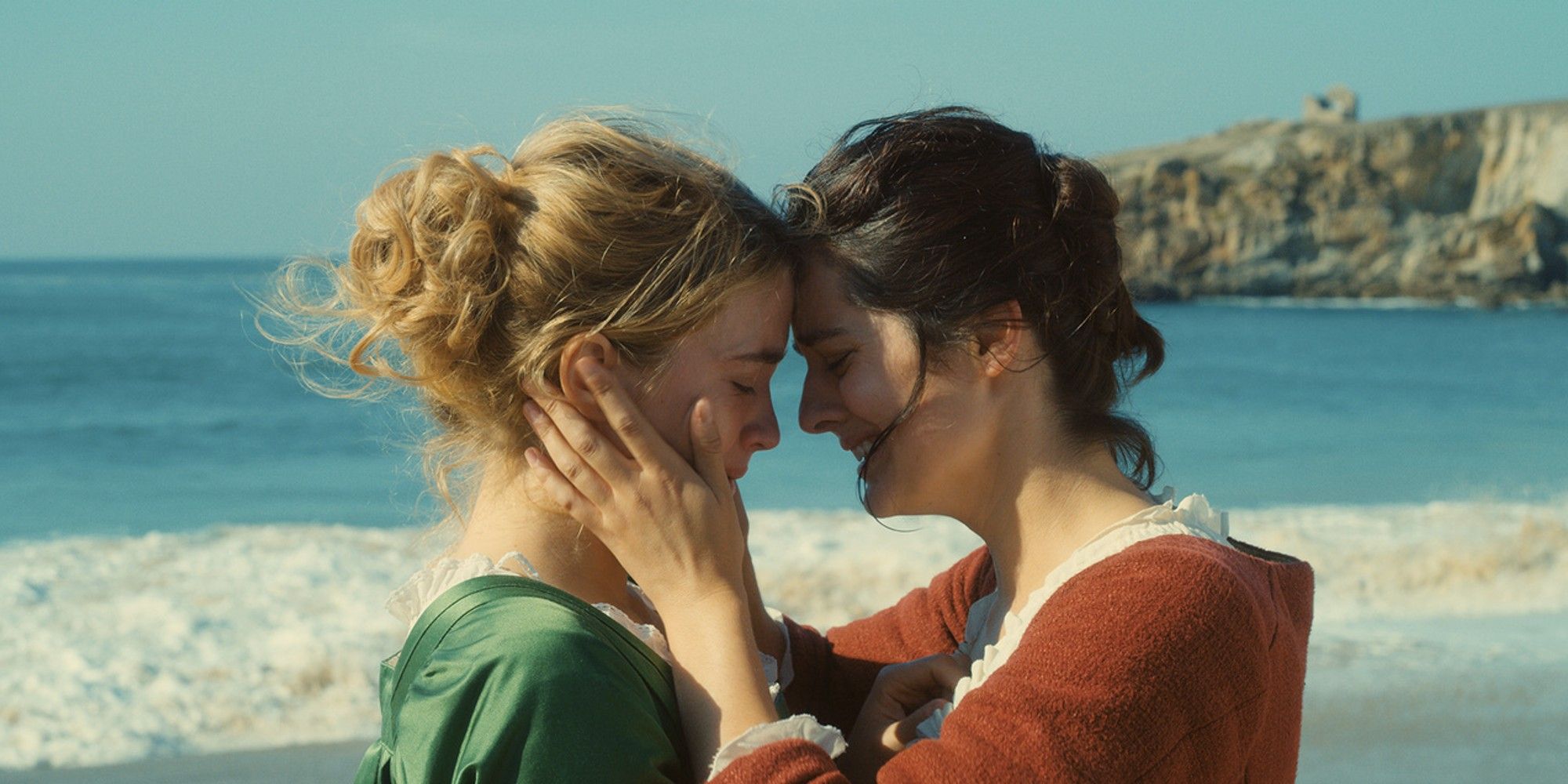With another Oscars season fast approaching its climax, there will no doubt be as much talk about snubs as there will be about the films actually nominated. Looking back through the history of the awards, especially with our understanding of the canon as cemented as it is today, it is surprising to find the sheer number of staple and iconic films absent from the nominations and the number of forgettable pictures that sit in their place.
Historically, International features have been reserved for their own categories, with each country nominating the film that will represent it that year. In recent years, there has been the slow recognition of international features in the Best Picture categories. One can't help but lament the great filmmakers of the past, Yasujiro Ozu and Andrei Tarkovsky, who were never recognized by the body during their lifetimes.
1 Yasujiro Ozu — 'Late Spring' (1949)
Noriko (Setsuko Hara) is perfectly content living at home with her widowed father, Shukichi (Chishu Ryu), and has no plans to pursue marriage, despite approaching 30. However, her Aunt Masa (Haruko Sugimora) convinces Shukichi that if Noriko does not marry soon, she will forever be alone. Shukichi begins to work behind his daughter's back to make this happen, despite how it may impact their relationship.
Yasujiro Ozu is one of the great cinema pioneers, never recognized by the academy in the best international feature, let alone Best Picture territory (although he did operate in a period where the major Hollywood Studios still dominated the Academy). Late Spring is just one of his greats, a prime example of his meditative style and deep understanding of human nature.
2 Federico Fellini — 'Nights of Cabiria' (1957)
Cabiria (Giulietta Masina) constantly strives for a better life amidst struggle and cynicism. Wandering the often empty streets of Rome, her encounters with others spur romance, danger, loneliness, and so much more.
Federico Fellini ties with fellow countryman Vittorio De Sica as the most awarded directors in the Best International Feature Films category (four each), and one cannot help but feel that surely one of those films might have cracked the Academy's most prestigious category. Cabiria teeters on the edge of the two halves of Fellini's career, still carrying the look and feel of Italian neo-realism but beginning to fall into the surreal and the sublime.
3 Jean Luc Godard — 'Contempt' (1963)
American Producer Jeremy Prokosch (Jack Palance) is unhappy with the work of his latest project, an adaptation of The Odyssey directed by Fritz Lang. He brings in a young screenwriter, Paul Javal (Michel Piccoli), to revitalize the script; however, when a rift forms between Javal and his wife (Brigitte Bardot), their personal and professional lives begin to overlap.
Much like Ozu, Jean Luc Godard, despite his monumental output and popularity, especially in the 1960s, was never recognized by the Academy. Contempt feels like the work that might have had the greatest chance at recognition, with his use of stars Bardot and Piccoli and an appearance from the legendary Fritz Lang himself.
4 Jacques Demy — 'The Umbrellas of Cherbourg' (1964)
Before he is sent to Algeria to fight, Guy (Nino Castelnuovo) and Genevieve (Catherine Deneuve) make love. Genevieve falls pregnant and must choose between awaiting Guy's return or marrying a wealthy diamond merchant.
Jacques Demy's gorgeous romantic-musical earned itself a nomination for Best International Feature, but as both a sonic and visual achievement, it deserves a spot among the most celebrated works of its time. One of the most imaginative and colorful musicals ever put to screen, The Umbrellas of Cherbourg's is not a "musical" as much as it is heartbreak set to song.
5 Francois Truffaut — 'Day for Night' (1973)
In this Francois Truffaut feature, the director himself plays the embattled director of a film dealing with the personal and professional struggles that play out between himself, the cast, and crew.
Throughout his far-too-short career, the French New Wave pioneer was thrice nominated for the Academy Award for Best International Feature, with Day for Night his sole victory and with due cause. The love letter to craft is an often attempted affair. However, Truffaut was not just a lover of cinema: he was cinema. It sustained him, most evidenced in the scene of the film where the director's (Truffaut) stack of books arrives for his consumption between shooting days.
6 Andrei Tarkovsky — 'Stalker' (1979)
A writer (Anatoly Solonitsyn) and a scientist (Nikolai Grinko) are led by a "Stalker" (Alexander Kaidanovsky) through a dangerous, mysterious place only known as the "Zone." "Anomalies" of physics and science often occur in the Zone, and so too exists a room that grants one's innermost desires, the goal of the writer, seeking inspiration, and the scientist, who seeks wisdom and discovery.
Andrei Tarkovsky is a man who redefined time and space in cinema. One can always find his work among lists of the greatest films of all time, and Stalker is one of the greats among them. However, Tarkovsky was, unfortunately, another lifelong Academy snub.
7 Abbas Kiarostami — 'Close Up' (1990)
When Iranian director Abbas Kiarostami hears of the trial of a man who defrauded a family by impersonating Iranian filmmaker Mohsen Makhmalbaf, he gains permission from a judge to film the trial. As the story unfolds, Kiarostami works to create a docu-fiction account of the events prior to, during, and following the trial.
Another in the line of celebrated filmmakers to have never received Academy recognition in their lifetime, Abbas Kiarostami was a formal innovator like few others, whose films spoke to the intersection between life and art, especially the art of cinema. Close Up is often regarded as not only one of the director's greatest films but one of the greatest films of all time, period, and his absence from the Awards during his lifetime perhaps speaks to the body's historic disregard of certain global regions.
8 Park Chan-wook — 'Oldboy' (2003)
Oh Dae-su (Choi Min-Sik) spends 15 years imprisoned in a room. Upon his release, hungry for revenge and desperate for information, he embarks on a campaign of violence and intrigue to enact some sense of justice.
Park Chan-wook's 2003 hit is a tense action-mystery-thriller that is still adored today, but, at the time of its release, like its contemporary Memories of Murder, failed to receive Academy recognition. The Academy has since given the latter film's director, Bong Joon-Ho, his moment of deserved recognition, and perhaps there is still time for Chan-wook, who continues to produce incredible works of cinema like 2022's Decision to Leave, to receive some justice of his own.
9 John Ajvide Lindqvist — 'Let the Right One In' (2008)
Oskar (Kare Hedenbrandt) is a lonely 12-year-old boy living in Stockholm. Tormented by bullies, his only friend is Eli (Leah Leandersson), a strange girl who begins to appear at night in the playground outside his apartment building.
Written by horror novelist John Ajvide Lindqvist, Let the Right One In does not adhere to that generic title alone, weaving a romantic coming-of-age narrative set in a dark and moody atmosphere. Let The Right One In continues to be celebrated, with both a stage and English language adaptation following the original, and is a prime example of the overall disregard for the "horror" genre among these major cultural bodies.
10 Celine Sciamma — 'Portrait of a Lady on Fire' (2019)
Marianne (Noemie Merlante) is a painter brought to an isolated island in order to paint a wedding portrait for Heloise (Adele Haenel). Others have tried and failed before her, but Marianne and Heloise soon begin to form a special bond.
2019 was the year that saw Parasite become the first film not in the English language to win Best Picture, and rightfully swept the awards that year. Despite this momentous achievement, it is unfortunate that Celine Sciamma's gorgeous film did not find itself in competition with Bong Joon Ho's masterpiece, as it too is a dazzling cinematic achievement that won the hearts of so many that year.

